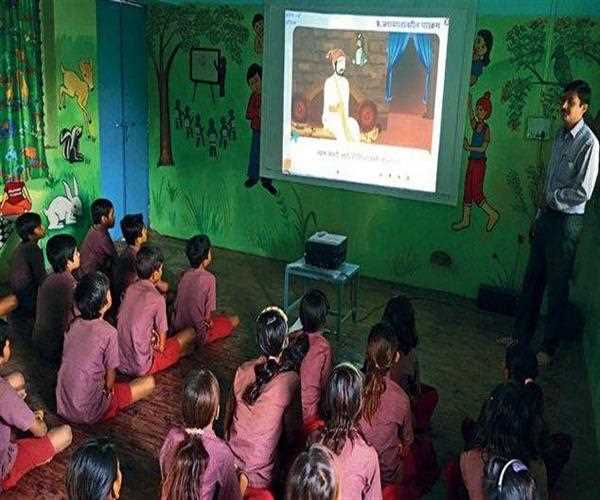
21-Apr-2020
E-Education Spreading In Rural India During Coronavirus Pandemic
In the era of the Corona crisis, today all educational activities are being done through online mediums. The central government has provided many facilities for online studies. The Union Human Resource Development Ministry has launched the Bharat Padhe Online Campaign. The aim of this campaign is how online education can be improved. The meaning of this entire exercise is to overcome the obstacles that come in the way of e-education.
E-education can prove to be extremely effective and effective in spreading education in rural India and remote areas. In rural India, lack of teachers, lack of interest in the education of people, poverty, lack of infrastructure, etc. are the main reasons due to which there is no progress in the field of rural education.
But this situation can be changed with the use of e-education. Rural India will be able to take advantage of online education only when its digital infrastructure is very strong. And this is where the biggest challenge arises.
Rural India still lacks facilities like electricity, broadband network connectivity, banking, etc. All these things are related to each other. Practically, even today, electricity has not reached many homes in rural areas. Without electricity, the convenience of a broadband network is meaningless. It is true that smartphones have emerged as a major medium of e-education these days, but it is also true that even today, not all mobile phone consumers in India have smartphones available, especially in rural areas. There is also no proper arrangement of the internet. The lack of infrastructure is obviously the biggest challenge in rural India for online education.
Another major challenge for e-education in rural India is the lack of digital culture. Local languages are the formal medium of education in rural India. These dialects and languages are an important part of the communication and teaching method of education, but mobile phones and another medium of the internet are mostly compatible with the English language which do not inspire digital behavior in villages. If online education is to be made successful in the villages, then the use of digital mediums operating in local languages will have to be encouraged.
In this way, the hesitation towards digital mediums in rural India will also be broken. It has been revealed in many studies that India's rural population is digitally illiterate. Ignorance of reading, writing, understanding and communicating the language used in digital practice, and ignorance of new technologies is an obstacle in the path of online.
In fact, after these basic problems, concerted efforts will also have to be made to strengthen the penetration of online education in the villages. To deliver education in rural areas, firstly the study material can be passed on to the students and then interacted with the teachers through online video. Another option is where the course can be recorded and used to teach students who do not attend these classes. This creates expanded access to education.
Rural education requires e-learning technologies. In fact, it is the responsibility of the government to ensure the conduct of teacher training programs in rural areas and it should seek the help of NGOs in such activities. The journey to ensure the digitization of rural India is very long, as it requires extensive work. The current crisis is a golden opportunity to prepare to meet these challenges.

Content Writer/Journalist
I am a content writter !
Join Our Newsletter
Subscribe to our newsletter to receive emails about new views posts, releases and updates.
Copyright 2010 - 2026 MindStick Software Pvt. Ltd. All Rights Reserved Privacy Policy | Terms & Conditions | Cookie Policy